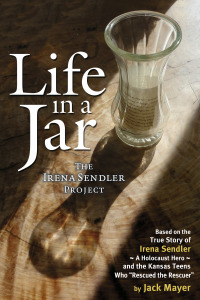| Return to “In His Own Words”View the Photo Gallery “I am not the monster that Adolf Eichmann | Eichmann’s Final Plea:Presiding Judge: Adolf Eichmann, you have heard your Counsel’s statement on the penalty. Do you wish to add anything concerning thepenalty which the Court should impose on you for the crimes of which you have been found guilty? Accused: I have heard the Court’s severe verdict of guilty. I see myself disappointed in my hopes for justice. I cannot recognize the verdict of guilty. I understand the demand for atonement for the crimes which were perpetrated against the Jews. The witnesses’ statements here in the Court made my limbs go numb once again, just as they went numb when once, acting on orders, I had to look at the atrocities. It was my misfortune to become entangled in these atrocities. But these misdeeds did not happen according tomy wishes. It was not my wish to slay people. The guilt for the mass murder is solely that of the political leaders. I did try to leave my position, to leave for the front, for honest battle. But I was held fast in those dark duties. Once again I would stress that I am guilty of having been obedient,having subordinated myself to my official duties and the obligations of war service and my oath of allegiance and my oath of office, and in addition, once the war started, there was also martial law. This obedience was not easy. And again, anyone who has to give orders and has to obey orders knows what one can demand of people. I did not persecute Jews with avidity and passion. That is what the government did. Nor could the persecution be carried out other tha nby a government. But I never… I accuse the leaders of abusing my obedience. At that time obedience was demanded, just as in the future it will also be demanded of the subordinate. Obedience is commended as a virtue. May I therefore ask that consideration be given to the fact that I obeyed, and not whom I obeyed. I have already said that the top echelons, to which I didnot belong, gave the orders, and they rightly, in my opinion, deserved punishment for the atrocities which were perpetrated on the victims on their orders. But the subordinates are now also victims. I am one of such victims. This cannot be ignored. It is said that I could and should have refused to be obedient. That is a consideration with hindsight. Under the circumstances then prevailing such an attitude was not possible. Nor did anyone behave in this fashion. From my experience I know that the possibility, which was alleged only after the War, of opposing orders is a self-protective fairy tale. An individual could secretly slip away. But I was not one of those who thought that permissible. It is a major error to believe that I belonged to the fanatics of the persecution of the Jews. In the entire post-War period I have been tormented and incensed that all the guilt has been shifted from my superiors and others onto me. I did not in fact make any statements which could have shown my fanaticism, and no blood guilt lies on me. In this connection the witnesses have told a great falsehood. The Court’s putting together of statements and documents initially makes a very convincing impression, but it is a deceptive one. I shall try to clarify these errors before the next legal instance. Nobody came to me and remonstrated with me because of my official activities. Even the witness Pastor Grüber does not claim this. He came to me and only wanted relaxations to be granted, without criticizing my official activities themselves. He confirmed here in Court that I did no treject him, but simply stated to him that I had to obtain my superiors’decision, that I myself could not take a decision. Dr. Lösener, the ministerial director who was referred to in the proceedings, was the expert in charge of Jewish affairs in the Reich Ministry of the Interior. He has died. In his written statement of justification, which has appeared only recently, he admitted that he knew of the atrocities and that he also informed his superiors accordingly. It must be assumed that everyone in the Ministry of the Interior was thus made aware of what was going on. But no one opposed my superiors. Ministerial Director Lösener continued silently in tacit opposition and served his Führer as a well-paid judge in the Reich Administrative Court. That is the form that the courage of one’s convictions takes in the case of a prominent person. In the report he wrote in 1950, Lösener expresses views about me, according to which I am supposed to have been a primary figure in the persecution of the Jews. But these are simply emotional outbursts, without any indication of facts in which these speculations are rooted. The same applies to other witnesses. I was asked by the judges whether I wished to make an admission of guilt, like the Commandant of Auschwitz, Höss, and the Governor General of Poland, Frank. These two had every reason to make such anadmission of guilt: Frank, as the person who gave the orders, admitted his guilt for the orders which he gave, and balked at delegating to inferiors. Höss was the one who actually carried out the mass killings. My position is different. I never had the power and the responsibility of a giver of orders. I never carried out killings, as Höss did. If I had received the order to carry out these killings, I would not have escaped by using a trumped up pretext; during my interrogation I already stated: Since because of the compulsion exerted by an order there was no way out, I would have put a bullet through my brain in order to solve the conflict between conscience andduty. The Court believes that my current attitude is a result of being ontrial and is a fabrication. A whole list of items was given which appear toconfirm this. But the contradictions which exist were caused by the fact that,at the beginning of my interrogation by the police, naturally I could not remember details with precision. It was too much, what I had experienced inrecent years. Nor did I resist; this is shown by the police record which isover 3,500 pages long. What I said was the first unrestrained attempt to provide assistance in shedding light on things. Mistakes did occur in this, butI had to be allowed to correct them. After sixteen or twenty years have lapsed,I cannot be reproached with such mistakes, nor should my willingness to providea ssistance be considered as a subterfuge and a lie. My life’s principle,which I was taught very early on, was to desire and to strive to achieve ethical values. From a particular moment on, however, I was prevented by the State from living according to this principle. I had to switch from the unity of ethics to one of multiple morals. I had to yield to the inversion of values which was prescribed by the State. I had to engage in introspective examination in areas which concern my inner self alone. In this introspective examination I have to ignore my sense of guiltlessness in the legal sense. And I would now ask the Jewish People on a personal level for forgiveness, and I would admit that I am overwhelmed by shame when I think about the evil committed against the Jews andthe acts that were perpetrated against them. But in the light of the reason in gof the Judgment this would probably only be interpreted as hypocrisy. I am not the monster that I am made out to be. I am the victim of an error of judgment. I was assaulted in Buenos Aires, tied to a bed for a week and thendrugged by injections in my arms and brought to the airport in Buenos Aires;from there I was flown out of Argentina. This can quite obviously only be explained by the fact that I was considered to be the person who was responsible for everything. The reason for this lies in the fact that the National Socialists of the time and others have spread untruths about me. They wanted toe xonerate themselves at my expense, or to create confusion for reasons unknown to me. Oddly enough, some of the press coverage also reproduced the same untrue descriptions in an extremely exaggerated fashion over fifteen years in a most suggestive manner. This is the cause of the false inference. This is the reason why l am here. I thank my Counsel, who has insisted on my rights. I am utterly convinced that I must suffer here for others. I must bear what fate imposes on me. Presiding Judge: We shall announce the sentence on Friday,the day after tomorrow, at 9 o’clock. | |
Adolf Eichmann’s Final Plea [ Home | Classroom | “In His Own Words” | Resources | ||






